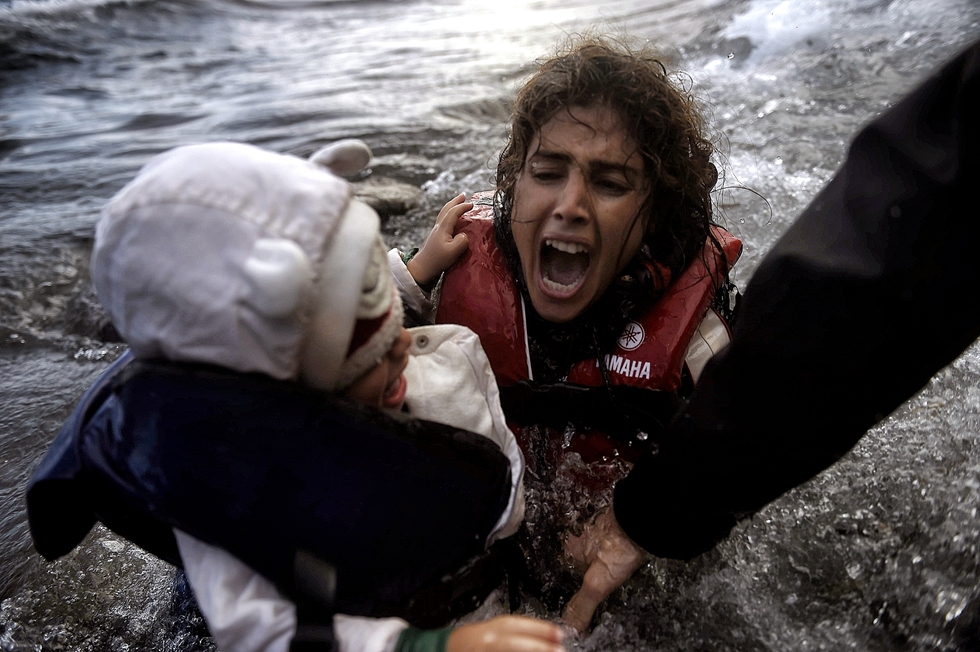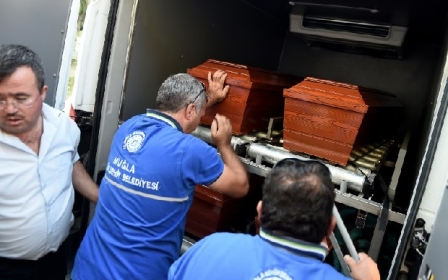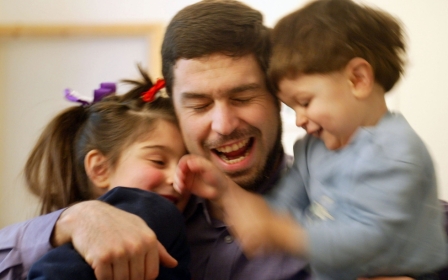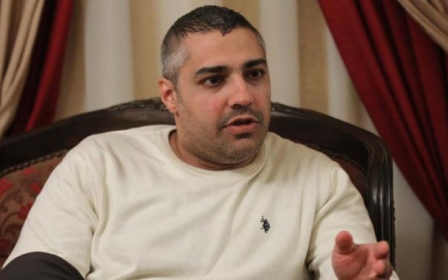Canada is complicit in the refugee crisis

Bombing Islamic State for a year will cost Canada half a billion dollars. Canada previously spent at least $18 billion in its war in Afghanistan. The seven-month bombing of Libya in 2011 cost another $347 million. Over a million people have died since the “war on terror” was launched in 2001.
When it comes to invading and bombing countries, Western countries are ready to spend billions. But when it comes to helping refugees flee from those same countries, they look away, their deep pockets having suddenly shrunk.
Such is the case for Canada.
A shameful response
According to Immigration Minister Chris Alexander, a mere 2,300 Syrian refugees have resettled in Canada and the federal government has pledged to take another 10,000 by 2017 - Germany has welcomed that many in just one day.
Only 26 per cent of refugees have been government-sponsored, while private groups such as families, churches and community organisations have financially supported the rest.
Compare this with the 2 million Syrian refugees in Turkey, supported by the government. In Lebanon, one in four is a refugee.
If Canada wanted to welcome just one-quarter of the refugees Germany is accepting (800,000), Canada would have to increase its number twentyfold - to 200,000 per year.
Scott Gilmore, explains in his Maclean’s article, “Why Canada should take in 20 times more refugees,” that it wouldn’t cost much either:
“In Ontario a single refugee could receive up to $781 per month for a year, in addition to a one-time allowance of $905. Germany calculates that they spend slightly more, about $11,600 (CAD) per new refugee. Increasing our refugee intake by a factor of 20 would cost approximately $2.2 billion a year.
“That might sound like a lot, but it works out to $63 per Canadian. The parties would only need to give up a few of the boutique tax credits they are sprinkling across the country.”
Instead, the government has placed bureaucratic hurdles to prevent refugees from entering the country. It could take as long as two and a half years for a refugee to come to Canada.
Out of the four million Syrian refugees, there are only nine Syrian cases on the Canadian government list of refugees pre-approved for private sponsorship. Canadians are ready to welcome refugees but they are stuck waiting for red tape to clear, frustrated with the skeleton crew of visa officers staffed on the field.
According to Toronto refugee lawyers Geraldine Sadoway and Andrew Brouwer, “Quietly and systematically, in collaboration with European, Australian and US allies, Canada has been closing every possible avenue of access for refugees.
“By doing so, we drive them into the hands of smugglers who are reaping profits at the expense of the lives of desperate people.”
Canadian policy is also highly discriminatory, preferring to resettle Yazidi and Christian Syrians over Muslim Syrians, who form 85 per cent of the population.
The Harper government fear they might be welcoming Jihadi terrorists into the country. It’s an unfounded notion that only spreads fear among the public.
Research has actually shown that Muslim societies are significantly less violent than other ones.
Intervention’s aftermath
Canada’s actions abroad have been counterproductive to achieving peace.
Libya was once a prosperous oil exporting country with the highest living standard and life expectancy in Africa. Today, it is a destroyed, failed state.
Human rights violations were widespread in Libya, but that is also the case for Saudi Arabia, a key Western ally.
Within 40 years, Colonel Muammar Gaddafi transformed Libya from one of the poorest nations in Africa to the wealthiest. Gaddafi nationalised the country’s oil to support a social welfare programme that included free healthcare, education, electricity and interest-free loans. He actively pushed for an African union to provide stability and wealth to the continent.
All of this quickly changed with the West’s “humanitarian” bombing intervention in 2011, which NATO deemed as “one of the most successful in NATO history”.
In flagrant disregard of UN Resolution 1970, which implemented an arms embargo, countries such as the US, UK, Canada and France armed the rebels with weapons. Canada supplied the rebels with drones to gather intelligence and Canadian forces were on the ground, violating UN Resolution 1973 that forbid foreign occupation of any form in Libya.
When Gaddafi was tortured and killed by a mob in November 2011, and his body was dragged through the streets, war supporters celebrated, praising the West’s mission as a successful model to follow for future interventions.
Shortly after, Libya quickly descended into devastating anarchy; various militias currently compete for authority and the economy is in shambles.
"It was the actions taken against Mr Gaddafi that totally undermined security in Libya and opened the floodgates of refugees," Jacob Zuma, president of South Africa said last month addressing diplomats in Pretoria.
"They don't want to accept the refugees,” Zuma said referring to European countries involved in the mission. “It is their responsibility. They caused it, they must address it.”
3,000 refugees have died this year trying to reach Europe.
These foreign interventions under the guise of “spreading democracy” and “liberating the people” have only brought more war and chaos.
2014 was the deadliest on record for Afghan civilians, according to a UN report that documented 3,699 civilian deaths, with 72 per cent attributed to insurgents. After more than a decade of war, the civilian death toll is 18,000.
Journalist Mehdi Hasan explained in this video that before the invasion of Iraq in 2003, there wasn’t a single recorded suicide attack in the country. Since 2003, 1,892 suicide attacks have killed almost 20,000 people.
Groups such as ISIS and al-Qaeda didn’t exist before the West’s invasion.
Fighting an Orwellian war
Canada and the West have been caught numerous times fuelling both (or several) sides of the conflict in the Middle East.
In March 2015 Canadian media echoed reports from Yeni Safak, a Turkish newspaper, that a Syrian spy working for the Canadian embassy in Jordan had been arrested. Mohammed Mehmet Rashid was caught helping three young women travel from London to Turkey to join ISIS.
Reports say Rashid confessed to working for Canadian intelligence in order to obtain Canadian citizenship. The federal government refused to comment and the news disappeared as quickly as it surfaced. No media investigated the issue further.
In another case last June, a trial in London collapsed after it was revealed that British intelligence was arming the same rebel groups the defendant was charged of supporting.
We no longer know who is fighting whom anymore; allies and opponents are interchangeable.
For years al-Qaeda was the terrorist target. But now the situation has become so bizarre that David Petraeus, the former head of the CIA, has called on al-Qaeda to help fight ISIS.
Yet in an interview with Al Jazeera, Hamid Karzai, the former president of Afghanistan, admitted that al-Qaeda did not exist.
Which group is winning the war is irrelevant. For the West, it’s important to keep the war machine going - divide, conquer and collect the profit.
It’s why Canada has also been supplying military hardware to Saudi Arabia, a well-known violator of human rights and long-time suspect of funding ISIS.
Decades of violent Western intervention in the Middle East and Africa have done its part. Instead of launching airstrikes in Iraq and Syria, which are killing innocent civilians, Canada and the West should try everything they can to resettle refugees fleeing from the chaos they created themselves.
New MEE newsletter: Jerusalem Dispatch
Sign up to get the latest insights and analysis on Israel-Palestine, alongside Turkey Unpacked and other MEE newsletters
Middle East Eye delivers independent and unrivalled coverage and analysis of the Middle East, North Africa and beyond. To learn more about republishing this content and the associated fees, please fill out this form. More about MEE can be found here.





